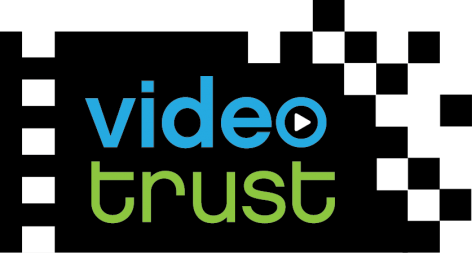Frequently Asked Questions
What can my library gain from joining ALVT?
Participating libraries may, under conditions prescribed by Video Trust and copyright law, upload digital versions of certain AV works from their collections that comply with the conditions of Section 108 of the Copyright Act. Libraries may also download copies of works they already own and add them to the library collections as replacement for obsolete copies. The ALVT service facilitates the application of opportunities afforded to libraries under U.S. copyright law and enables those working in them to quickly locate copies of many AV works – especially works that are largely available only in obsolete VHS format – and efficiently and affordably add replacement or preservation copies to their collection.
Is ALVT a streaming site?
Not currently. Members are free to download digitized files of works already owned or licensed to their libraries, but ALVT doesn't provide streaming to its users.
How does copyright apply to ALVT?
Many AV works in ALVT will likely be protected by copyright law, and they may be uploaded and downloaded if done in a manner consistent with U.S. copyright law. Section 108(c) is a vital provision of the U.S. Copyright Act that permits qualified libraries and archives, under specific conditions, to make digital versions of many types of works to replace copies that are damaged, deteriorating, lost, stolen, or in an obsolete format. AV works contributed by and made available through ALVT may serve solely as replacements in member libraries, subject to the conditions of Section 108(c) of the U.S. Copyright Act. See ALVT Background & History for more information.
How does copyright apply to uploading AV works?
A participating library may make a digital copy of an AV work and upload it to ALVT, provided that the library confirms that it has made the copy consistent with the requirements of Section 108(c). ALVT supplies information and guidance about copyright, and the member library must represent that it has reviewed and complied with all copyright requirements. For example, a qualified library or archives may only make a copy of a work if it is damaged, deteriorating, lost, stolen, or in an obsolete format, and after checking the market for an unused replacement copy. Because the work may be damaged or even gone, the law allows a library to obtain the copy from another institution. Therefore, a library that made a copy for its own collection under Section 108 may in turn make that copy available to other libraries. ALVT provides a platform for uploading a copy for safekeeping and for lawful access by other member libraries.
How does copyright apply to downloading AV works?
Section 108(c) authorizes libraries and archives to make a copy of an AV work, as described above. The law anticipates that a library may need to obtain the copy from another library, and ALVT makes such copies available for downloading and adding to library collections.
Who can be authorized to access ALVT? Can this access be extended to faculty and/or students?
Only authorized library staff may access the upload/download functions of ALVT, but institutional members may expand or change their list of authorized users at any time. Each user must be issued their own login credentials, assigned by the system admins. Sharing user login credentials is strongly discouraged. When a user is no longer authorized, we ask that the institution notify ALVT.
